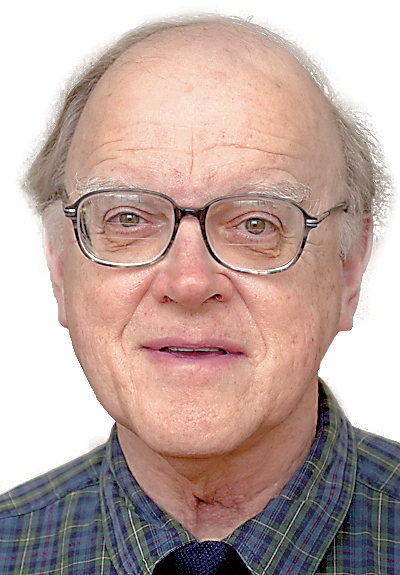Earlier this year, 1,500 adults and children stood bewildered in the parking lot outside a long-stay motel in East Ridge that they had called home. The structure had been abruptly shut down after inspectors found it unfit for human habitation.
The refugees needed shelter, food and medications. They were as bereft of hope as if a tornado had suddenly wiped out their neighborhood.
Pete Cooper, president of the Community Foundation of Greater Chattanooga, was among the first responders to the unfolding tragedy. As he had on other occasions, Cooper did not wait to be summoned to the scene of desolation and potential chaos. He began to call colleagues from other volunteer agencies to help organize immediate relief that continued until all the displaced persons had safe accommodations, meals and other necessities.
Building a hopeful future for these people is a continuing process. In responses to this and other disasters, Cooper has great admiration for Metropolitan Ministries for its swiftness and nimbleness in meeting immediate needs of people in crisis. In response to tragedy, "we must be pro-active and not reactive," he says.
Cooper will close a 25-year career at the helm of the Community Foundation at the end of this month. I had a tutorial with him earlier in the month.
He learned volunteerism from his engineer father and kindergarten-teacher mother. He vividly remembers an occasion when they interrupted a family outing to help an injured woman to whom they gave first aid then drove her home.
With degrees from Ohio State University and Northwestern University, Cooper returned to Chattanooga for an internship in the charitable trust department of a bank. By age 26 he was head of that department. Several years later, he was senior vice president and head of the charitable trust department.
Cooper married Linda in 1973. Two of their four children have careers in social services.
In 1990, Cooper's mentor both in banking and philanthropy, the late Scotty Probasco, urged him to accept an offer to head the Community Foundation. The organization had neither office nor employees. It presided over $8 million committed by donors to charitable purposes. Colleagues could not understand his leaving a secure job and taking a pay cut for a future of uncertainty.
Today, Cooper and a staff of seven direct a complex, multi-faceted charitable organization whose assets exceed $115 million with millions more pledged. The foundation raises more than $15 million annually for support of projects in education, health care, alleviation of poverty and malnutrition and community betterment among others. He praises the energy, knowledge and dedication of his staff and emphasizes the value of a diverse, engaged board in the organization's success.
Community Foundation has a long history of charitable giving and Cooper says he's repeatedly been moved by sustained generosity from many sources. He sees a major role for the Community Foundation as an advisor to people who want their charitable donations to have maximum impact in the community. Accounts set up under the foundation umbrella may have specific goals such as early childhood education or broader goals of welfare and community enhancement.
Cooper cites the foundation's scholarship program as the most satisfying aspect of his tenure. Today, 400 Hamilton County young adults attend college with foundation-funded scholarships. These men and women come from backgrounds where a college education was often not an option. They can count on mentoring and emergency assistance throughout their collegiate time. Sixty-nine percent of scholarship recipients graduate.
Compared to the community of 1990, Cooper sees the city of 2015 having increased confidence in itself and its future. In this 25-year span, an urban renaissance has steadily gained momentum. Entrepreneurship has flourished, and downtown is a destination with multiple attractions for all ages. The pace of change is accelerating, and the optimism that fuels it is robust.
Philanthropy is changing as well. Major donors are being joined by younger residents, even teens, who want to be personally involved in improving their community.
"We form our giving habits when we are young when we see the needs of the world and do what we can do with the resources we have," Cooper says. He recalls a group of Jewish teens who pooled monetary gifts at the time of their bar mitzvahs to support an environmental project.
Traditional giving by churches, charitable boards and civic clubs is being supplemented by "giving circles" in which a group of like-minded people convene to address a specific need. They ask tough questions and seek speedy resolutions of problems. Chattanooga's Un-Foundation is an example of this new style of giving.
Cooper considers reform of the public education system as the most daunting and pressing challenge for Chattanooga and Hamilton County.
"We must assure that all our young people are more than adequately prepared for a constantly changing employment scene," he says. This means better pre-kindergarten through the 12th grade and beyond to assure that "all can live and work in one of the best cities in America. Standing still is not an option. Our school system can't operate in isolation. Businesses, the Chamber of Commerce, foundations - all of us - must be fully engaged.
"I'm a huge optimist. This city is positioned so well - young people, brains, vision, altruism - the challenge is to put it all together."
As Cooper closes this chapter in his life, he is thinking ahead to ways in which he can improve the prospects of disadvantaged youngsters in the inner city, which he is quick to point out is an integral part of a city whose best days lie ahead.
Retirement is not an option.
Contact Clif Cleaveland at ccleaveland@timesfreepress.com.

